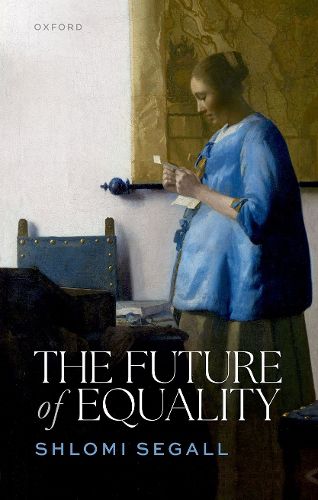Readings Newsletter
Become a Readings Member to make your shopping experience even easier.
Sign in or sign up for free!
You’re not far away from qualifying for FREE standard shipping within Australia
You’ve qualified for FREE standard shipping within Australia
The cart is loading…






Philosophers have been preoccupied with the future from time immemorial. But for egalitarians, the future of humanity constitutes a relatively new challenge. The premise of this book is that a complaint-based ideal of egalitarianism faces problems when applied to the future. For one thing, if we suppose that future people are destined to fare better than us (say, in terms of overall wellbeing), then allowing humanity to flourish would then represent a net increase in terms of egalitarian complaints. With respect to equality, at least, it would be better to refrain from bringing new life into being. That seems absurd. This is the Anti-Natalist objection to egalitarianism. Second, any policy aimed at reducing future inequalities, and indeed any population policy at large, will in all likelihood affect the identity of those who will be born. This familiar Non-Identity problem poses unique problems for egalitarianism, especially ones of the complaint-model. Arguably, a person cannot have a complaint (about being worse off than another) when the only other alternative distribution is one in which she does not exist. Put differently, such a person lacks a standing to complain about this future inequality. This can be referred to as the Non-Identity objection or as the Standing objection to egalitarianism. This book examines how to evaluate different scenarios for humanity's future from an egalitarian perspective. It is argued that planning for the future does require egalitarian considerations, but that egalitarianism also needs to be adapted to handle future persons. As indicated, a key challenge concerns how to evaluate mixed populations containing both necessary and possible persons. The book proposes a pluralist approach combining egalitarianism with prioritarianism. Prioritarianism, itself, also suffers unique problems when applied to the future, chief among them the Separateness of Persons objection. The book attempts to deflect these obstacles and aims to develop a coherent framework that maintains egalitarian principles while appropriately discounting the status of merely possible people. Overall, the book seeks to advance both our ethical assessment of humanity's future and our understanding of the nature of equality, and distributive ethics more generally.
$9.00 standard shipping within Australia
FREE standard shipping within Australia for orders over $100.00
Express & International shipping calculated at checkout
Philosophers have been preoccupied with the future from time immemorial. But for egalitarians, the future of humanity constitutes a relatively new challenge. The premise of this book is that a complaint-based ideal of egalitarianism faces problems when applied to the future. For one thing, if we suppose that future people are destined to fare better than us (say, in terms of overall wellbeing), then allowing humanity to flourish would then represent a net increase in terms of egalitarian complaints. With respect to equality, at least, it would be better to refrain from bringing new life into being. That seems absurd. This is the Anti-Natalist objection to egalitarianism. Second, any policy aimed at reducing future inequalities, and indeed any population policy at large, will in all likelihood affect the identity of those who will be born. This familiar Non-Identity problem poses unique problems for egalitarianism, especially ones of the complaint-model. Arguably, a person cannot have a complaint (about being worse off than another) when the only other alternative distribution is one in which she does not exist. Put differently, such a person lacks a standing to complain about this future inequality. This can be referred to as the Non-Identity objection or as the Standing objection to egalitarianism. This book examines how to evaluate different scenarios for humanity's future from an egalitarian perspective. It is argued that planning for the future does require egalitarian considerations, but that egalitarianism also needs to be adapted to handle future persons. As indicated, a key challenge concerns how to evaluate mixed populations containing both necessary and possible persons. The book proposes a pluralist approach combining egalitarianism with prioritarianism. Prioritarianism, itself, also suffers unique problems when applied to the future, chief among them the Separateness of Persons objection. The book attempts to deflect these obstacles and aims to develop a coherent framework that maintains egalitarian principles while appropriately discounting the status of merely possible people. Overall, the book seeks to advance both our ethical assessment of humanity's future and our understanding of the nature of equality, and distributive ethics more generally.